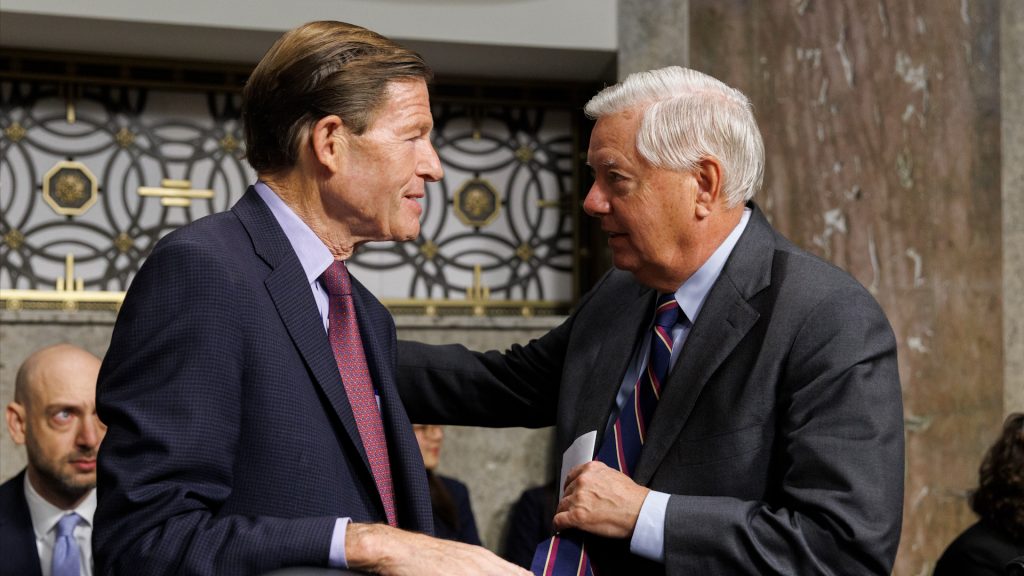Senators push sweeping Russia sanctions as Trump urges caution

A bipartisan group of U.S. senators is advancing legislation that would impose sweeping sanctions on Russia if President Vladimir Putin refuses to engage in serious ceasefire negotiations with Ukraine. The bill, titled the Sanctioning Russia Act of 2025, was introduced by Sen. Lindsey Graham (R-S.C.) and Sen. Richard Blumenthal (D-Conn.) and currently has more than 80 Senate co-sponsors.
“If we can get a ceasefire and negotiations, great. We’ll wait,” Graham said in an interview with Bloomberg. “But if Putin keeps playing games, we are going to move.” He added that the Senate may act on the bill within days if no progress is made.
The push reflects growing frustration in Congress over Russia’s ongoing invasion of Ukraine and the lack of concrete progress in peace talks, despite recent diplomatic outreach by President Donald Trump.
What would the sanctions bill include?
Tariffs
A proposed bipartisan bill would slap 500% tariffs on countries that continue buying Russian oil and gas unless Putin stops stalling on ceasefire negotiations.
The legislation would authorize the president to impose sanctions on the Russian government, military, state-aligned financial institutions and energy companies. The bill also includes a 500% tariff on imports from any country that continues to buy Russian oil, natural gas, uranium or other petroleum products.
- Ban U.S. purchases of Russian sovereign debt
- Prohibit investments by U.S. financial institutions in Russian state-linked entities
- Bar the listing or trading of Russian-affiliated companies on U.S. securities exchanges
- Freeze the assets and revoke visas of Russian political and military leaders
- Prohibit uranium imports from Russia and impose sanctions on buyers of Russian-origin uranium abroad
- Require blocking of SWIFT-like financial services for sanctioned Russian banks
Under Section 4 of the bill, these sanctions would be triggered by a presidential “covered determination” that Russia has refused to negotiate peace, violated a peace agreement or launched another military invasion of Ukraine.
How is the White House responding to the legislation?
Despite overwhelming Senate support, the Trump administration has urged lawmakers to hold off. Secretary of State Marco Rubio told senators on Tuesday, May 20, that new sanctions risk undermining fragile backchannel talks. “If you start threatening sanctions, the Russians will stop talking,” Rubio said at a Senate Foreign Relations Committee hearing.
Rubio added that Russia is expected to submit a proposed ceasefire “term sheet” in the coming days, which will allow U.S. officials to assess Moscow’s intentions.
Could the bill advance without Trump’s support?
The measure would also need to pass the House, where GOP leadership remains closely aligned with the Trump White House. Graham acknowledged that if the administration opposes the legislation, lawmakers might attempt a discharge petition to force a vote, a maneuver that circumvents leadership.
Still, backers of the bill remain confident. “We are beyond pleased that we now have 81 cosponsors,” Graham and Blumenthal said in a joint statement, describing the sanctions as “hard-hitting.”
U.S. Ambassador to NATO Matthew Whitaker told Bloomberg TV he believes the administration and Congress will ultimately work in tandem. “I fully expect that that will be hand in glove and hopefully advance the peace process ultimately,” Whitaker said.





